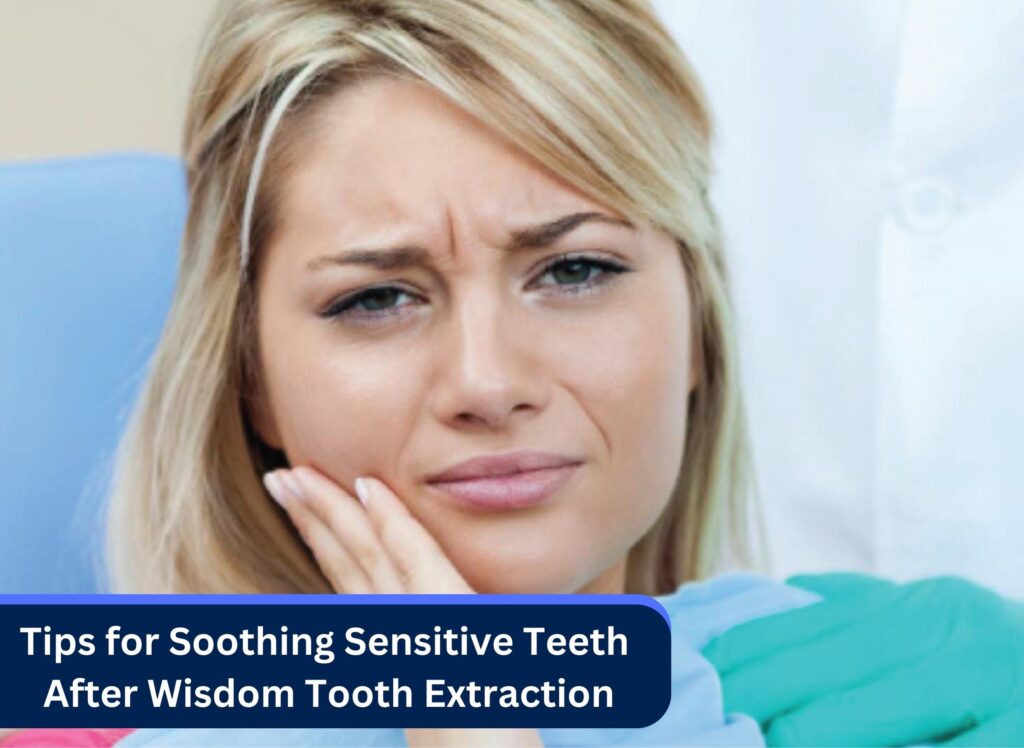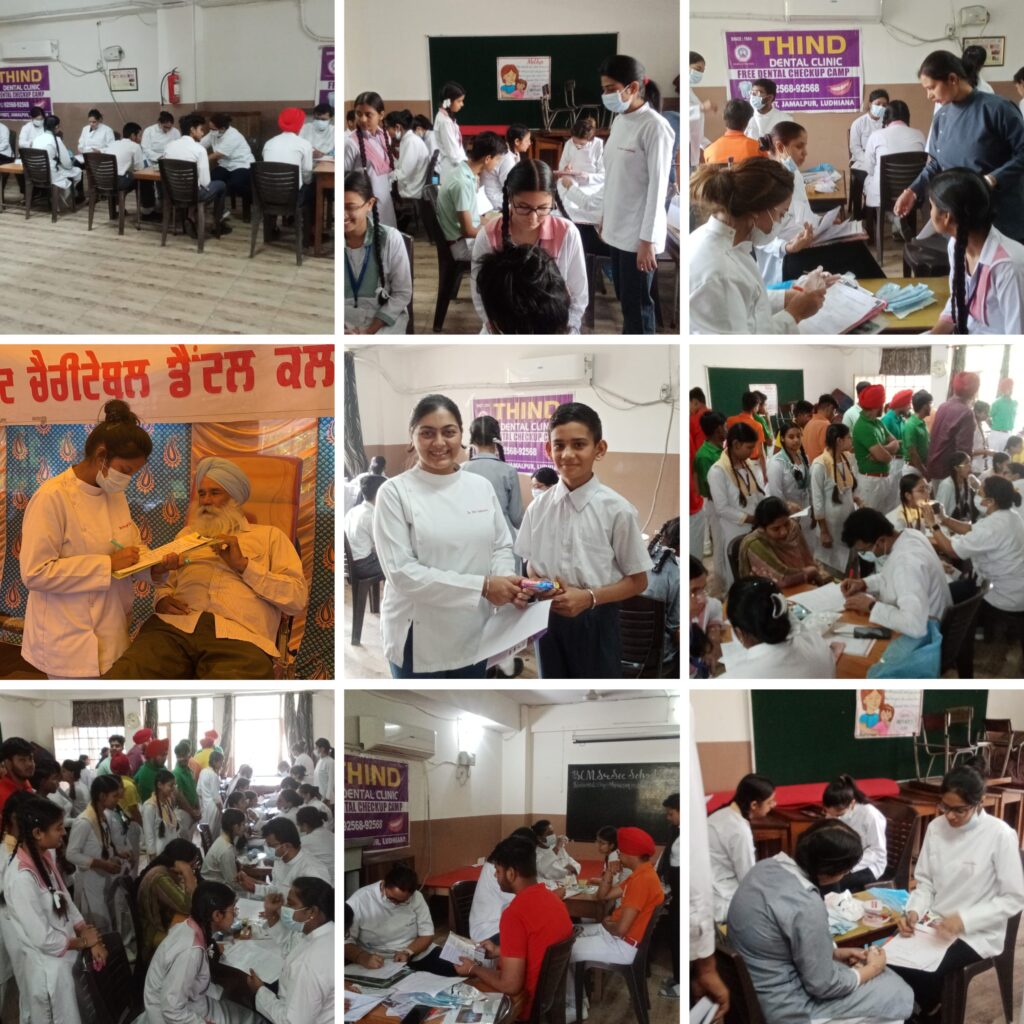Wisdom tooth extraction is a common dental procedure at Thind Dental Clinic in Ludhiana that can help alleviate various oral health issues. However, it’s not uncommon for patients to experience tooth sensitivity after the extraction. Understanding and addressing this sensitivity is crucial for a comfortable recovery. In this article, we’ll explore the reasons behind sensitive teeth after wisdom tooth extraction and provide valuable tips to soothe discomfort during the healing process.
Why Do Teeth Become Sensitive After Wisdom Tooth Extraction?
Several factors can contribute to tooth sensitivity following wisdom tooth extraction:
1. Surgical Trauma: The process of extracting a wisdom tooth is a surgical procedure that involves the manipulation of surrounding tissues and bone. This surgical trauma can affect not only the extracted tooth but also neighboring teeth. The manipulation and pressure applied during the extraction process can cause temporary stress to nearby teeth, leading to sensitivity.
2. Exposed Dentin: Sometimes, the removal of a wisdom tooth can inadvertently expose underlying dentin. Dentin is a layer beneath the tooth’s enamel and is more porous and sensitive. When dentin is exposed, it becomes susceptible to external stimuli like temperature changes and pressure, resulting in heightened sensitivity.
3. Nerve Irritation: The proximity of the extraction site to nerves in the jaw can lead to temporary nerve irritation. While the wisdom tooth itself may not have been directly connected to these nerves, the surgical procedure and inflammation in the area can affect nearby nerves. This irritation can transmit sensations of discomfort and sensitivity to adjacent teeth.
4. Inflammation: Inflammation is a natural and necessary part of the healing process following any surgical procedure, including wisdom tooth extraction. However, this inflammation can extend beyond the immediate extraction site and affect the surrounding area, including neighboring teeth. Inflamed tissues can become more sensitive and responsive to various stimuli, causing discomfort.
5. Healing Process: The body’s healing response can also contribute to tooth sensitivity. As tissues regenerate and repair, nerve endings may become more sensitive during this phase, leading to heightened sensations of discomfort.
Tips for Alleviating Tooth Sensitivity After Wisdom Tooth Extraction
1. Maintain Excellent Oral Hygiene: Proper oral hygiene is essential during the healing process. Gently brush your teeth twice a day with a soft-bristle toothbrush and rinse with a mild, alcohol-free mouthwash. Avoid the extraction site to prevent any disruption.
2. Follow Post-Operative Instructions: Our clinic’s dentist or oral surgeon will provide specific post-operative instructions. Follow these guidelines carefully, including any recommendations for pain relief medications.
3. Use a Sensitive Toothpaste: Consider switching to a toothpaste designed for sensitive teeth. These toothpaste products contain ingredients that help reduce tooth sensitivity over time.
4. Avoid Extremely Hot or Cold Foods: Steer clear of foods and drinks with extreme temperatures, as they can trigger sensitivity. Instead, choose products that are lukewarm or room temperature.
5. Soft Diet: Stick to a soft diet in the days following the extraction. Avoid crunchy, hard, or chewy foods that could irritate the surgical area or neighboring teeth.
6. Salt Water Rinses: Rinsing your mouth with warm salt water can help reduce inflammation and soothe sensitivity. Mix about half a teaspoon of salt in a cup of warm water and rinse gently.
7. Over-the-Counter Topical Gels: Some over-the-counter topical gels designed for oral use can help numb the area and provide relief from sensitivity. Consult our clinic’s dentist before using any products.
8. Stay Hydrated: Stay hydrated by drinking plenty of water. Proper hydration supports the healing process and can reduce discomfort.
9. Avoid Tobacco and Alcohol: Refrain from smoking and consuming alcohol during your recovery period. Both can slow down the healing process and increase the risk of complications.
10. Follow-Up with Our Clinic: Attend all scheduled follow-up appointments with our clinic’s dentist or oral surgeon. They can assess your healing progress and address any concerns or issues promptly.
Conclusion
Tooth sensitivity after wisdom tooth extraction is a common occurrence, but it can be managed effectively with the right approach. By following these tips and adhering to our dentist’s guidance at Thind Dental Clinic in Ludhiana, you can minimize discomfort and ensure a smooth recovery process. If you experience severe or prolonged sensitivity, don’t hesitate to contact our dental professionals for personalized care and advice.
For additional information or to arrange an appointment with us
You can contact us at +91-92568-92568
or visit us at:
THIND DENTAL CLINIC
11-12-13-14 H.I.G Market, Opposite Water Tank, Ludhiana, Punjab 141010.
Also Read:
Single Sitting Procedure: Painless and Affordable Dental Care at Thind Dental Clinic
Dental Care for Children: Expert Tips for Parents on Caring for Your Child’s Teeth
The Importance and Benefits of Regular Dental Checkups: Ensuring Optimal Oral Health
Professional Dental Implants: Restoring Smiles with Precision and Care at Thind Dental Clinic in Ludhiana

 Timings
Timings


